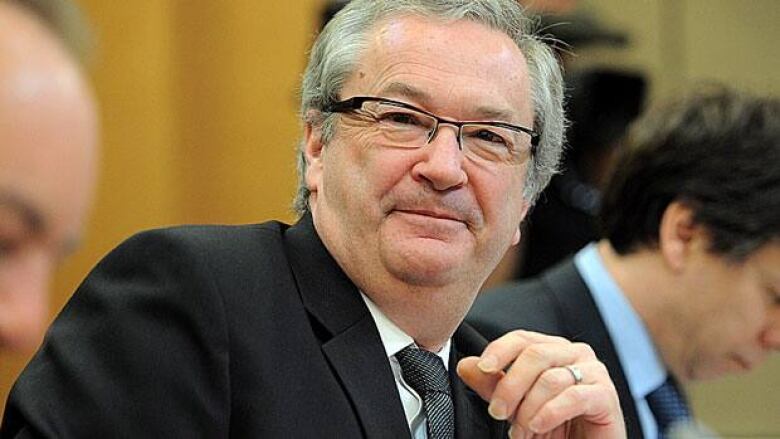Elections watchdog mulls regulating parties' voter databanks
Chief electoral officer looking at potential abuse of technology

The federal election watchdog is examining whether regulations are needed to control the use — and abuse — of the massive voter identification databanks assembled by political parties.
Chief electoral officer Marc Mayrand acknowledged Tuesday that technology has enabled politicians to communicate with and engage voters more easily.
But it's also had a downside, as the so-called robocall affair has exposed.
"I think technology provides a lot of benefits," Mayrand said in an interview with The Canadian Press.
"What's been a surprise to me so far is how easy it can be misused. That, I think, has not been foreseen in these cases."
Elections Canada has received almost 1,400 complaints from voters who say they received automated calls misdirecting them to polling stations for the 2011 election. Mayrand would not talk specifically about the robocall scandal as it is still under investigation by the commissioner of elections.
Court documents have revealed that the investigation appears to centre on the Ontario riding of Guelph, although the agency has received complaints from voters in 234 of the country's 308 federal ridings.
Investigators have been probing the Conservative party's massive voter database, known as the Constituent Information Management System, including who had access to it and why there appears to be a gap in the user log around the time that the robocalls were made in Guelph.
Report to Parliament
Mayrand said he'll report to Parliament by the end of March with recommendations on how to improve election law to prevent the abuse of technology, such as automated phone messages.
"How it's used is something that requires attention and how easy it can be misused, what can we do to prevent future misuse," he said.
That may include recommendations for regulating party databanks.
"Generally, the data collected by parties is not subject to privacy legislation so that's an issue that may need to be explored," Mayrand said.
"We know also that parties are gathering a fair bit of information to target their activities toward various demographic groups. But again, little is known about how this information is gathered, how long it's retained, what happens when there's a breach ... what level of security does exist around access to this information, is it used only for the purpose of election campaigning?
"There are all sorts of questions that arise in that regard."
Mayrand said regulation of party databanks "is something we'll examine over the next several months and my report may contain some suggestion in that regard."
Robocalls investigation
Elections Canada has been criticized in some quarters for dragging its feet on the robocall investigation, concentrating on Guelph and failing to follow up on allegations of similar vote-suppression tactics in other ridings.
But Mayrand said the inability to speedily solve the affair is due to the complexity of the case and the technological challenges faced by investigators.
Court documents have shown that the misleading, automated phone messages in Guelph were the work of someone using a fictitious name and address, as well as an untraceable cellphone, credit card and Internet service provider.
Elections Canada has also been knocked lately for a series of procedural errors which led to an Ontario Superior Court judge overturning the results of the election in Etobicoke Centre, where Tory Ted Opitz defeated Liberal incumbent Borys Wrzesnewskyj by only 26 votes. Opitz has appealed the ruling to the Supreme Court, which has not yet ruled on the matter.
Mayrand, who was giving a series of interviews to mark democracy week, said he's always concerned when incidents arise that might shake Canadians' faith in the integrity of their electoral system. But he said the "few incidents in the last year" need to be kept in perspective.
"Every study we've conducted shows that, by far, Canadians are satisfied with the voting process. If you look at international indicators ... we're among the top 10 countries for a democracy health point of view."
More worrying to Mayrand than the allegations of irregularities, is the long-term trend of declining voter turnout, particularly among young people.
He noted that in 1965, 65 per cent of young first-time eligible voters actually cast ballots. That dropped to 58 per cent in 1985 and a meagre 34 per cent in 2004. Furthermore, studies have found that young people who don't vote the first time they're eligible to do so, never vote in subsequent elections either.
Resolving the problem will need a concerted effort "by the whole of civil society" to engage young people, including outreach efforts by political parties and candidates and civic education by the media, parents and teachers.
While some have suggested moving to a system of mandatory voting, as Australia, Belgium and some other countries have done, Mayrand said: "I'm personally convinced we won't address that with a quick fix."
"We need to continue to research and understand the phenomenon better and look at, again, civic education as a long-term route to improve turnout."